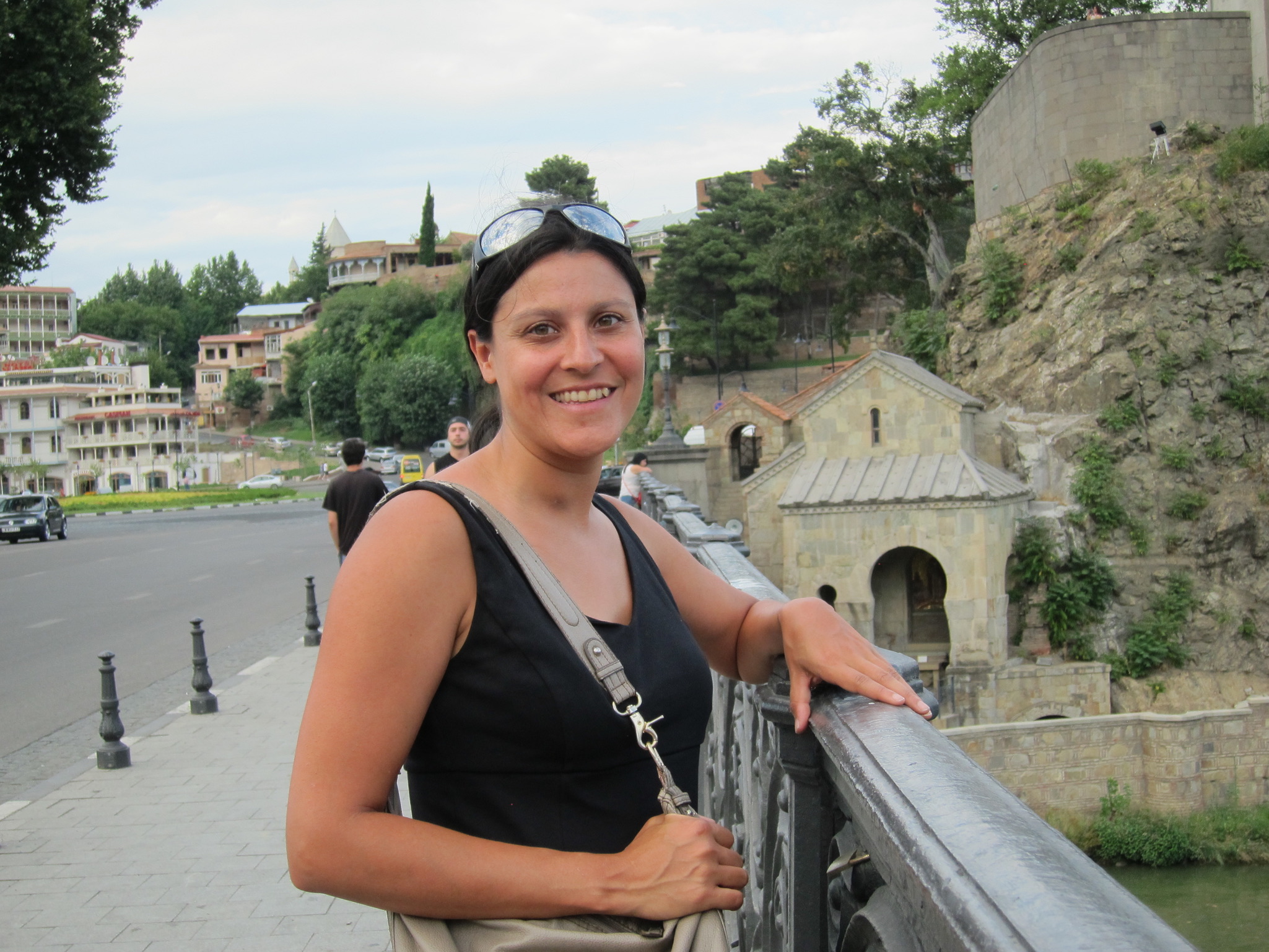
Photo courtesy Carolin Roeder
Maya K. Peterson, a pioneering environmental historian of central Asia and associate professor at the University of California, Santa Cruz, passed away suddenly on June 16, 2021, at age 41. Her death was followed a day later by the passing of her newborn daughter, Priya Luna.
Maya grew up in South Hadley, Massachusetts, the only child of Mark and Indira Viswanathan Peterson, both professors at Mount Holyoke College. She embraced the liberal arts by attending Swarthmore College, where she majored in history and made lifelong friends on the rugby team and beyond. Maya then earned a master’s in regional studies of Russia, eastern Europe, and central Asia at Harvard University, where she first became interested in central Asia. She stayed on at Harvard for her doctoral studies, earning her PhD in 2011 before moving to UC Santa Cruz a year later.
Maya’s book, Pipe Dreams: Water and Empire in Central Asia’s Aral Sea Basin (Cambridge Univ. Press, 2019), stands as a milestone in the growing field of central Asian environmental history. By telling the history of water management in the Aral Sea basin from the 1840s to the 1930s, Maya recast Russian and Soviet imperial histories from their environmental frontiers. In Maya’s view, the many river diversion plans, cotton-growing schemes, and overambitious irrigation projects in the region were part of a common Russian imperial project to turn this alleged wasteland frontier into a productive agricultural landscape. Maya was careful to center the native populations, who often resisted, in ways big and small, the efforts to make them disciplined, loyal subjects of newly irrigated lands. She captured vividly the human cost of these engineering projects. She also highlighted the continuities of environmental imperialism across the czarist-Soviet rupture. While it is too soon to judge fully, her book is poised to shape scholarship on the Russian and Soviet projects in central Asia and on environmental history in frontiers.
In just under a decade at UC Santa Cruz, Maya became a fixture on campus. As a historian of an underrepresented area, she embraced teaching a millennium of history and supervised a bevy of independent studies. She advised multiple award-winning undergraduate theses, supervised two graduate students, and served on five graduate committees. All the while, she nurtured a second intellectual home at the Rachel Carson Center for Environment and Society in Munich, where she was a fellow, and she traveled far and wide, presenting work in Alaska, Estonia, China, and many places in between. Through this work, she steadily built global scholarly communities and nurtured wider interest in central Asia, helping to expand the field into issues of race, medicine, biopolitics, and the environment. Her ongoing projects included a study on the Soviet steppes as a curative climate and a history of the role of fermented mare’s milk in central Asian cultures.
Maya was an adventurous soul. She packed more into her too-short life than many will achieve in double the years. History for her was not an isolated passion but rather her access point to the wondrous diversity of our planet, which she savored with élan. She was a constant, restless traveler. She visited 34 countries on four continents. But it was the kind of travel she undertook, from mountain climbing with friends to solo adventures deep into rural central Asia, that revealed her unquenchable thirst for new experiences. Everywhere she went, she collected friends and forged communities. People were magnetically drawn to her enthusiasm, her unshakable equanimity and good humor, and her utter lack of pretension.
The communities that Maya built were in evidence at a virtual celebration of her life on December 16, 2021, hosted by Harvard’s Davis Center for Russian and Eurasian Studies. Over 140 people attended. Speaker after speaker elucidated how her scholarly contributions were inextricable from the lives she touched. As one colleague put it, Maya was “a deeply kindred spirit with whom to devour the world.” Memorial and scholarship funds have been established in Maya’s honor at UC Santa Cruz; the Association for Slavic, East European, and Eurasian Studies; and South Hadley High School. She is survived by her parents and her partner, A. Marm Kilpatrick.
Brendan Karch
Belmont, Massachusetts
Tags: In Memoriam Asia/Pacific Environmental History

This work is licensed under a Creative Commons Attribution-NonCommercial-NoDerivatives 4.0 International License. Attribution must provide author name, article title, Perspectives on History, date of publication, and a link to this page. This license applies only to the article, not to text or images used here by permission.
The American Historical Association welcomes comments in the discussion area below, at AHA Communities, and in letters to the editor. Please read our commenting and letters policy before submitting.
Comment
Please read our commenting and letters policy before submitting.






